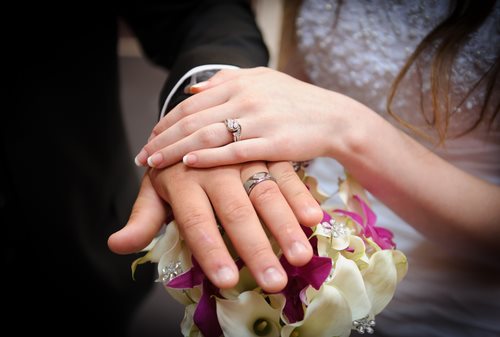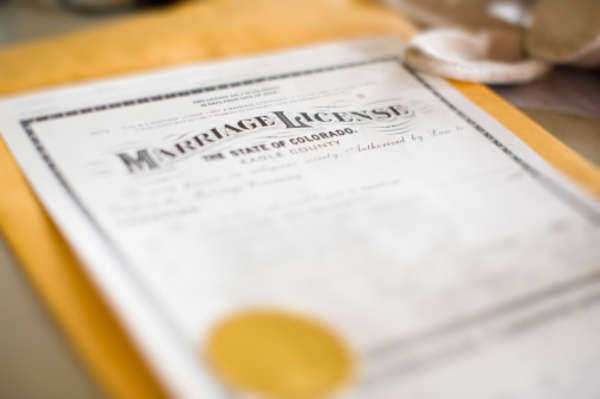Copy of Marriage License South Dakota

Preserving the Pledge: Securing a Copy of Your Marriage License in South Dakota
The solemnization of marriage is a significant milestone, and the marriage license is the legal document that encapsulates the commitment made between partners.
In South Dakota, obtaining a copy of your marriage license is not only a practical necessity for various legal processes but also a meaningful keepsake of the union.
This article serves as a guide to acquiring a copy of your marriage license in South Dakota, outlining the steps involved, the importance of the document, and its potential applications.
Requesting a Copy of Your Marriage License:
1. Timing of Request:
– Couples can request a copy of their marriage license from the Register of Deeds office in the county where the marriage ceremony took place. It’s advisable to initiate this request promptly after the marriage to ensure a smooth process.
2. Identification Requirements:
– When requesting a copy, the individuals involved in the marriage (or their legal representatives) must provide valid identification. This may include driver’s licenses, passports, or other government-issued IDs.
3. Visit the Register of Deeds Office:
– Visit the Register of Deeds office in person to submit the request. This typically involves completing an application form, providing identification, and paying a nominal fee.
4. Mail or Online Requests:
– Some counties in South Dakota allow for requests to be submitted by mail or online. Check with the specific county’s Register of Deeds office for information on their preferred method of request.
5. Processing Time:
– The processing time for a copy of a marriage license varies by county. Inquire about the expected turnaround time when submitting the request.
Importance of a Copy of Your Marriage License:
1. Legal Proof of Marriage:
– A copy of your marriage license serves as legal proof of your marital status. It is a document recognized by government agencies, financial institutions, and other entities as evidence of the couple’s legal union.
2. Name Changes:
– For individuals opting to change their last names after marriage, the marriage license is a crucial document. It provides the necessary legal basis for updating identification, such as driver’s licenses and Social Security records.
3. Insurance and Benefits:
– A copy of the marriage license may be required when applying for spousal benefits, insurance coverage, or making other decisions related to financial and legal matters.
4. Divorce Proceedings:
– In the event of divorce, a copy of the marriage license is often used in legal proceedings to establish the existence and details of the marriage.
Information Found on a Copy of Your Marriage License:
1. Full Names:
– The full names of both individuals involved in the marriage are typically recorded on the license.
2. Date and Location:
– Essential details, such as the date and location of the marriage ceremony, including the city or county, are documented.
3. Officiant’s Information:
– The name and title of the officiant who performed the marriage ceremony are often included.
4. Witnesses:
– The names of individuals who served as witnesses to the marriage may be documented.
5. License Number:
– The marriage license number assigned to the couple when they applied for the license is typically included.
Preserving Your Marriage Certificate:
1. Secure Multiple Copies:
– It’s advisable to secure multiple copies of your marriage license at the time of issuance to avoid additional trips or requests later on.
2. Safekeeping:
– Store your marriage license in a safe and secure location, such as a personal safe or a safety deposit box, to prevent loss or damage.
3. Digital Copy:
– Consider creating a digital copy of your marriage license and storing it securely in electronic format for easy access and backup.
Conclusion:
A copy of your marriage license in South Dakota is more than just a legal document; it is a tangible representation of a shared commitment. Whether for legal necessities, name changes, or as a cherished memento, securing and preserving this document is a crucial step for couples embarking on the journey of matrimony. Understanding the process of obtaining a copy and recognizing the legal and personal significance of the document ensures that couples can navigate the post-marital landscape with confidence and ease.
How to Get a Copy of a Marriage License in South Dakota
What is a Marriage License?
A marriage license gives a couple the right to get married. It is thus differentiated from a marriage certificate, which serves as a record that a marriage was undertaken.
Can I Get a Copy of a Marriage License in South Dakota?
The truth is that most counties will not let you get a copy of a marriage license in South Dakota. That is because there is simply little use for it. There are no insurance companies that, ten years after your marriage, will want to know that you were licensed to get married—they’ll simply want to know that you were married.
In fact, the only real reason a person will have to look at a copy of a marriage license in South Dakota is to marry you, and for that, you should not use a copy of a marriage license in South Dakota but the real thing.
How Do I Get a Marriage License in South Dakota?
As stated above, you can’t get a copy of a marriage license in South Dakota. It is, of course, still possible to get an original marriage license in South Dakota. To do it, visit your county’s Register of Deeds Office and fill out the appropriate form. Make sure the both parties go and bring photographic identification and a payment for the license, the amount of which varies across the sixty-six counties in South Dakota. In Minnehaha County, the fee of a marriage license is $40.
What Can I Get Instead of a Copy of a Marriage License in South Dakota?
The need to have a record that your marriage took place is a legitimate one, and you may be required at some time to indicate that you are lawfully married. For these purposes, instead of trying to find a copy of a marriage license in South Dakota, you should use your marriage certificate/record.
Getting a copy of a marriage record in the state is very easy, though it depends entirely on what county you live in. It usually requires contacting your local Register of Deeds Office. A form will be required and will be notarized at the Register of Deeds Office. Remember to bring proof of identity with you, particularly a state I.D. with a photograph. You will also need to pay a fee. In Minnehaha County, the fee for a copy of a marriage certificate is $15.
Once a request for a marriage certificate is made, a long search will begin for the record in question. If it cannot be found at the county office, it will be sent to the Department of Health and a further search will be conducted. If no records are found there, then a letter stating the inconclusive findings will be sent out, but the fee will not be returned, as it will be considered payment for the long search.



















